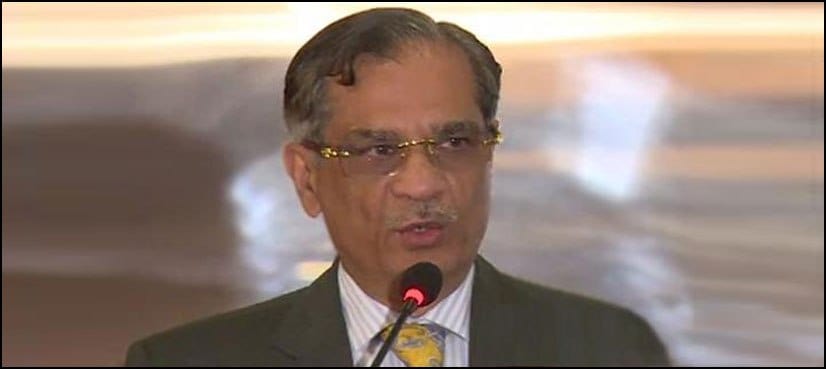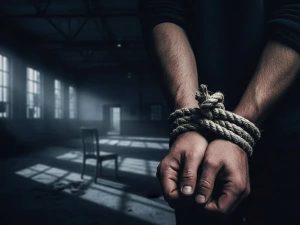ISLAMABAD – Chief Justice of Pakistan Justice Mian Saqib Nisar on Monday expressed anger on the absence of Attorney General Ashtar Ausaf in a case regarding the determination of disqualification period under Article 62 of the Constitution.
A five-member larger bench is hearing several petitions to determine the disqualification duration after being de-seated under Article 62 (1) (f) and other election laws.
As the hearing began, the chief justice asked about the whereabouts of the attorney general. In response, the additional attorney general (AAG) informed the court the AG is in Lahore and will submit a reply in writing.
On which, the CJP irked at his absence and remarked how he could travel to another city without taking permission from the court.
The AAG informed the bench that the AG is also going to abroad on Tuesday tomorrow. The apex court then imposed a fine of Rs10,000 on Ausaf.
Later, the AAG assured the court that the AG will appear in the court at 4:30pm and pleaded to quash the fine. The chief justice approved the plea.
At the last hearing on Thursday, Chief Justice Nisar said that there and ambiguities in Article 62(1)(f) of the Constitution.
Article 62(1)(f) reads: “A person shall not be qualified to be elected or chosen as a member of Majlis-e-Shoora (Parliament) unless-…he is sagacious, righteous and non-profligate, honest and ameen, there being no declaration to the contrary by a court of law.”
The article does not specify any time period after which the disqualified person can take part in elections.
The interpretation of the Article, which was much discussed after Nawaz Sharif’s disqualification by the apex court in the Panamagate verdict, will help determine the period of punishment, making it clear whether a number of lawmakers have been disqualified for life or time-specific.
The appeals are pending with the apex court for over one year as these were last taken up by the Chief Justice Anwar Zaheer Jamali.
During the hearings, Jamali had wondered how anyone could be barred from participating in elections for life under Articles 62 and 63, adding that they could again become qualified after reforming themselves during a time-period.













